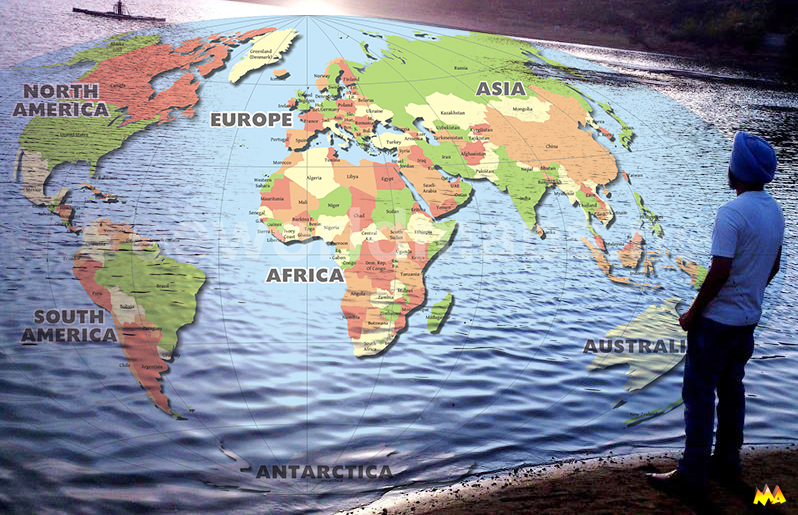Until recently I thought that activists working to bring about a sustainable, peaceful and just world were doing their bit. It was just a matter of finding a way to combine the local and global spheres, and the silos would be broken down.
 Now it’s clear that an adequate response to the human crisis can never occur by going from the local to the global level. It simply isn’t happening now, and will not happen in the future.
Now it’s clear that an adequate response to the human crisis can never occur by going from the local to the global level. It simply isn’t happening now, and will not happen in the future.
Because there is so little global perception and vision, activists in their silos are serving only to increase the fragmentation that is the source of the human crisis.
Do localities exist any longer? Or is there only an interconnected, inadequately addressed global reality?
At the core of the basic philosophy of localism is the idea and hope that somehow, somewhere in the future, the pieces will come together. That comforting mind-set is getting harder and harder to maintain, though the basic attitude isn’t changing. Why?
In talking to people concerned about climate change, peace and security issues, the common theme is that they feel overwhelmed by the enormity of the global crisis.
Their response to has been to focus on solving particular problems in their particular communities and regions. That’s commendable up to a point, but it hasn’t lessened their sense of feeling overwhelmed. Indeed, they’re feeling even more overwhelmed.
The reason is simple. The more one focuses on the parts, the more general fragmentation increases and the less one is able to meet them due to particularized and specialized thinking. Problems as a whole are neglected and worsen, generating a greater feeling of being overwhelmed.
Clearly towns and cities matter, but they now exist in the context of a global society, not of nations. Despite the fixation of the national media, nation-states have become less relevant than cities, if they matter at all anymore in any positive sense.
Class divisions have gone global. It now matters less what country you live in than how much money you make, and with whom you hobnob.
Patriotism is a veneer for a reality that no longer exists except to exclude the other, inside or outside the lines on a map.
Americans across the spectrum don’t care about Russian intrusion into our election because consciously or subconsciously they know that all oligarchs are in bed together. Of course the media and political class, whose reason for being is national identification, are obsessed with the issue.
It isn’t just that Pax Americana and the vaunted post-World War II international order are history. Nation-states no longer matter to the human prospect, except regressively.
With their incalculable wastages of human and material resources on weapons of mass destruction (and all modern weapons except rifles are weapons of mass destruction), nation-states have become anachronistic, indeed atavistic.
Obviously we cannot go back to city-states. That leaves only one option—go forward with globalization, though with intelligence and vision, rather than the greed and disorder of transnational corporations that defines globalization at present.
We can only go from the whole to the part, never from the parts to the whole. We cannot “scale up” our thinking; we can only scale down to regions and localities. Corporations “scale up” for profits; people have to see things as a whole, or be cut to shreds by the fragments of our splintered world.
Psychologically and emotionally, when you approach things in terms of parts and particularities, scale is scary. But if you approach problems as a whole, scale is secondary.
The self is a fragment that cannot grasp the whole. One has to let go of the part that is the self to see and be whole, and respond with wholeness to the totality of the challenges facing oneself and humanity.
The idea and hope of the activists is that somehow at some point in the future their piecemeal work will merge with many others’ pieces, and provide an adequate comprehensive response. But it can’t happen, because life doesn’t work that way. It just makes people pieces of work.
It’s a cliché that the whole is greater than the sum of the parts. But actually the principle goes further: the parts never make us whole.
There is no here vs. there anymore; there’s only here everywhere, wherever you are.
Martin LeFevre

